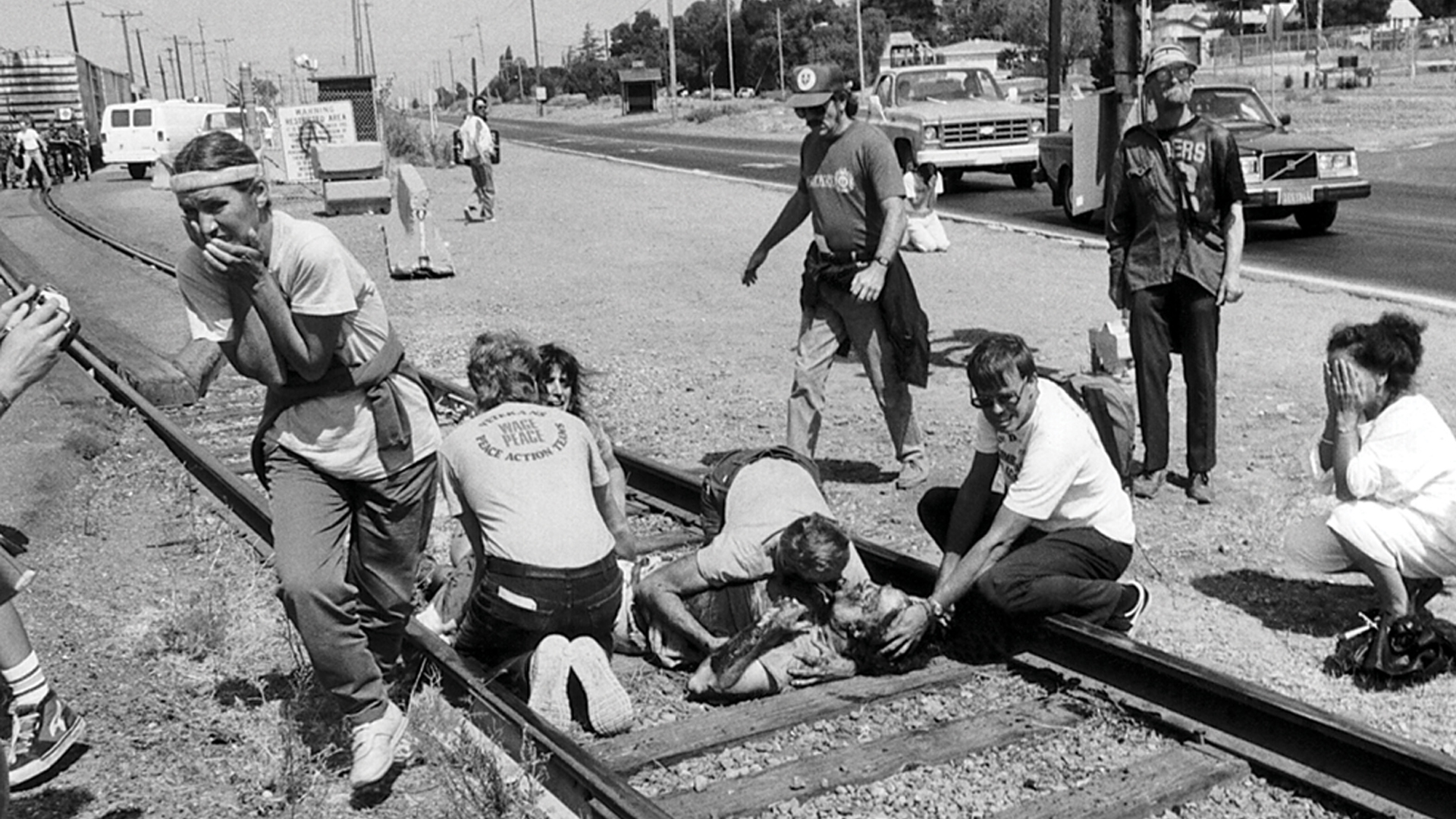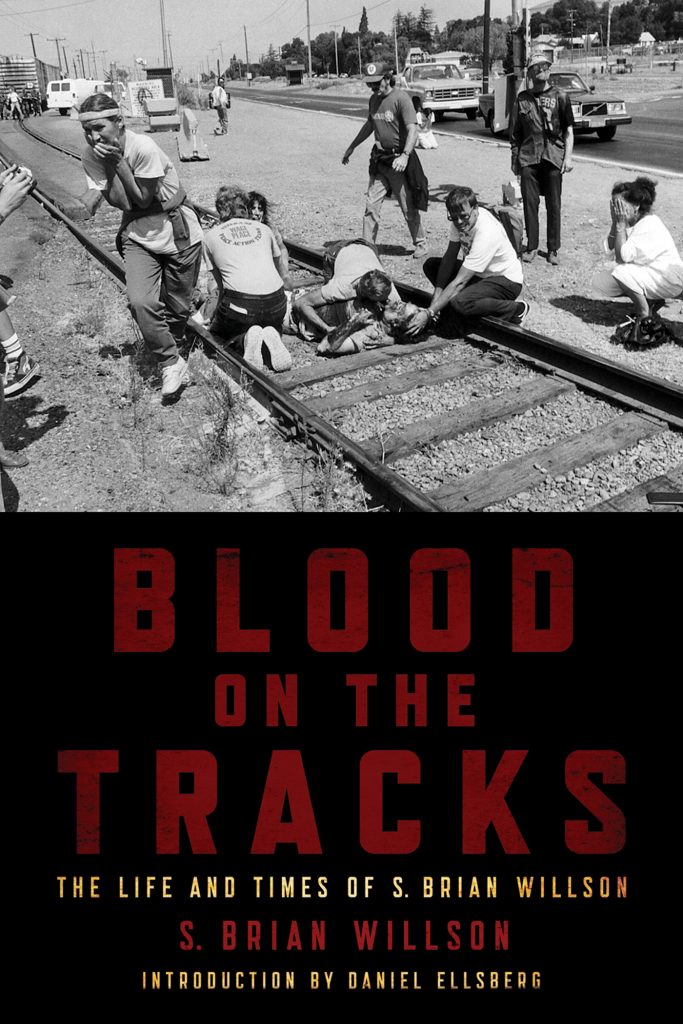by Greta Mart
The Martinez Gazette
July 14, 2011
To this day, Brian Willson questions why he so obediently—as an officer in the U.S. Air Force from 1966 to 1970—went “9,000 miles from home to participate in destroying people and villages who I knew nothing about.”
Willson, the veteran and peace activist who lost both of his legs below the knee after being run over by a military train at the Concord Naval Weapons Station in 1987, returned to the site of his maiming this week en route to a speaking engagement at Walnut Creek’s Mt. Diablo Peace and Justice Center.
Willson is currently traveling on a book tour, but since he renounced flying due to the destructive environmental impact of commercial jetliners, he cycles to his appointments on a hand-cranked bicycle, using his arms to propel himself.
He said he hasn’t flown in 11 years, naming the present TSA screening processes and the concurrent assault on civil liberties as a factor in his decision.
Since June 25, he has cycled 800 miles from his home in Portland, Oregon. He will go as far south as Capitola and return to his home via the Coast Starlight Amtrak train, he said in an interview Wednesday afternoon.
A supporter, Joel Finkelstein, has accompanied the 70-year-old Willson on this trip, toting behind his bike a trailer carrying tents and sleeping bags. When the duo hit Santa Rosa, they were joined by Willson’s longtime friend and fellow peace activist David Hartsough.
PM Press recently released Willson’s third book, Blood on the Tracks: The Life and Times of S. Brian Willson. Daniel Ellsberg, the former U.S. military analyst who released the Pentagon Papers, wrote the introduction to Willson’s book.
In an interview at the Sebastopol home of friends, Willson discussed his life journey since that fateful September day he was protesting the shipment of arms to Central America.
Nearly 25 years later, Willson continues to participate in anti-war demonstrations around the country and has broadened his focus to encompass environmental issues.
In Martinez, however, Willson is still best known for the confrontation that sparked a massive protest four days later, when an estimated 10,000 people came out in Concord to protest the Navy’s decision to treat the veterans blocking the trains as domestic terrorists. At the September 5, 1987 protest, well-known peace activists such as Joan Baez, Jesse Jackson, Alice Walker and Daniel Ellsberg joined in to bring national attention to U.S. involvement in Central America and express outrage over the train versus veteran clash.
“I saw my friend, Brian Willson, run over by a Navy train pulling two boxcars of explosives at Concord Naval Weapons Station (CNWS), the major military transshipment point for weapons on the West Coast,” said fellow activist Ken Butigan in an essay published by the Pledge of Resistance organization, describing how 2000 people had protested at the Concord Naval Weapons Station in June of 1987 and Willson had been part of a group determined to use non-violence to stop the arms shipments.
“The train plowed directly into Brian, dragging him twenty-five feet, tearing off his lower right leg, mangling his left ankle (both legs were later amputated), fracturing his skull. The train never slowed down until it stopped inside the restricted area,” 100 feet from the point of impact.
“The Navy train crew and their superiors knew in advance of our nonviolent three-member veterans’ blockade and had a clear, 650-foot view as the train approached us at high noon on a bright sunny day. Though expecting to be arrested and jailed by the nearby armed U.S. Marines and local police, we never imagined the conscious and criminal acceleration of the loaded train to more than three times its posted five-mile-an-hour legal speed limit,” Willson recalls on his website, www.brianwillson.com.
The former base is now shuttered and the City of Concord is in the process of redeveloping the area for commercial, residential and open space use.
“I had to go to
Vietnam to get awakened,” Willson said this week. Asked why he wanted to
return to the Concord Naval Weapons Station this week, Willson replied,
“We’re going to remember and be glad we’re still alive.”
Those interested in attending one of Willson Bay Area engagements can find times, dates and locations at www.bloodonthetracks.info.







